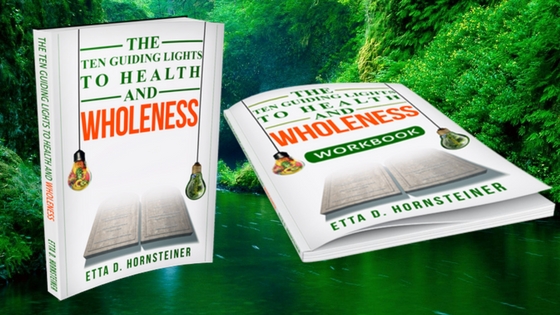American society is deluged with a proliferation of contradictory health and wellness information. Etta Dale Hornsteiner’s outstanding new book—The Ten Guiding Lights to Health and Wholeness—is a breath of fresh air: a holistic approach to health addressing the physical, mental and spiritual.
Hornsteiner daringly maintains that the Ten Commandments and the teachings of Jesus are a prescription for a healthy lifestyle.
Hornsteiner is an ecumenical educator whose love for physical fitness led her into body-building competitions and later into a career as a personal trainer, with a keen interest in nutrition. A graduate of Regent University, she is the editor of Transformational Living magazine in Atlanta, Georgia, whose goal is to “educate believers to live a productive and wholesome life.”
She wrote her new book because “I have grown very concerned, particularly for the faith-based community, as statistics continually show that this group remains a high-risk population in need of help. Obesity is a growing pandemic even among church-goers, who are more overweight than people who don’t go to church.”
“Several millennia ago,” she writes, “God gave humanity the principles for healthy living. Sadly, we’ve understood these commandments narrowly as things we should not do rather than as guiding principles for wholeness. The Ten Commandments are the foundation of any health and wellness program. They are there to lead us to good health, and not just spiritual health but also physical and mental health.”
She notes that “Jesus said, ‘I am come that they might have life, and that they might have it abundantly.’ This is health: life in abundance!”
Hornsteiner’s prescriptions for a healthy lifestyle are offered in 10 chapters (based on the Ten Commandments): (1) Avoid addictions; (2) Do not idolize your body; (3) Do not devalue God’s name; (4) Live a balanced life; (5) Cultivate your roots and you will grow; (6) Do not obstruct the flow of life; (7) Don’t go after less and expect more; (8) Don’t fake living; (9) Don’t mistreat anyone; (10) Don’t compare yourself with others.
God’s first commandment—You must not have any other god but Me—helps us to break our addictions, “whether the addiction is to food, drugs, sex, or work,” Hornsteiner writes. “God’s first commandment guards against narcissism—a false god we set up within ourselves.”
“Unfortunately,” she writes, “sloth (a dislike of exercise) and overconsumption of food are two vices of many church-goers. Obesity leads to a plethora of problems: hypertension, diabetes, mellitus, coronary heath disease, renal disease, stroke, pulmonary complications, arthritis, and cancer. The fact that we desire to live healthy and to learn healthier ways to care for our bodies delights God.”
Noting that the Apostle Paul said the body is the temple of the Holy Spirit, Hornsteiner urges readers to care for their bodies, to exercise their bodies regularly, to feed their bodies healthy, nutritious food, to keep their bodies clean, to give their bodies proper rest. She offers a list of healthy foods and unhealthy ones.
She recommends occasional fasting. “Jesus models fasting and assumes his disciples will do so as well,” she writes. “Fasting is healthy for the body.”
The 10th chapter is titled, “Don’t Compare Yourself with Others,” and quotes the commandment, “You must not covet.”
“Open the door to the spirit of covetousness and we will experience a slow death that gradually seeps like a slow poison into our being,” she writes. “If we understand what happens to us when we become excessively desirous of things that are transitory, or when we respond with envy or resentment to our neighbor’s success, then we would also comprehend why this commandment is one of the more relevant for achieving and maintaining health and wholeness.”
“Covetousness is a joy killer because it sows the seed of ingratitude,” she writes. “Social media and television commercials sow the poison of covetousness throughout the land.
“The opposite response to covetousness is gratitude. As people of faith, we are to be thankful for all things.”
Hornsteiner’s book is full of wisdom and practical tips for a healthy lifestyle for both believers and unbelievers. It deserves to be in every church library.









